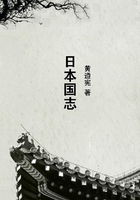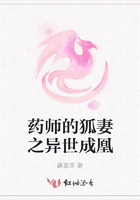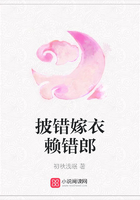It is claimed that Mohammed brought such a reform. He was born in the year 570, of the family of Hashem and the tribe of Koreish, to whom was intrusted the keeping of the Black Stone. He therefore belonged to the highest Arabian aristocracy. Early left an orphan and in poverty, he was reared in the family of one of his uncles, under all the influences of idolatry. This uncle was a merchant, and the youth made long journeys with him to distant fairs, especially in Syria, where he probably became acquainted with the Holy Scriptures, especially with the Old Testament. In his twenty-fifth year he entered the service of Cadijeh, a very wealthy widow, who sent to the fairs and towns great caravans, which Mohammed accompanied in some humble capacity,--according to the tradition as camel-driver. But his personal beauty, which was remarkable, and probably also his intelligence and spirit, won the heart of this powerful mistress, and she became his wife.
He was now second to none in the capital of Arabia, and great thoughts began to fill his soul. His wife perceived his greatness, and, like Josephine and the wife of Disraeli, forwarded the fortunes of her husband, for he became rich as well as intellectual and noble, and thus had time and leisure to accomplish more easily his work. From twenty-five to forty he led chiefly a contemplative life, spending months together in a cave, absorbed in his grand reflections,--at intervals issuing from his retreat, visiting the marts of commerce, and gaining knowledge from learned men. It is seldom that very great men lead either a life of perpetual contemplation or of perpetual activity. Without occasional rest, and leisure to mature knowledge, no man can arm himself with the weapons of the gods. To be truly great, a man must blend a life of activity with a life of study,--like Moses, who matured the knowledge he had gained in Egypt amid the deserts of Midian.
With all great men some leading idea rules the ordinary life. The idea which took possession of the mind of Mohammed was the degrading polytheism of his countrymen, the multitude of their idols, the grossness of their worship, and the degrading morals which usually accompany a false theology. He set himself to work to produce a reform, but amid overwhelming obstacles. He talked with his uncles, and they laughed at him. They would not even admit the necessity of a reform. Only Cadijeh listened to him and encouraged him and believed in him. And Mohammed was ever grateful for this mark of confidence, and cherished the memory of his wife in his subsequent apostasy,--if it be true that he fell, like Solomon. Long afterwards, when she was dead, Ayesha, his young and favorite wife, thus addressed him: "Am I not better than Cadijeh?
Do you not love me better than you did her? She was a widow, old and ugly." "No, by Allah!" replied the Prophet; "she believed in me when no one else did. In the whole world I had but one friend, and she was that friend." No woman ever retained the affections of a husband superior to herself, unless she had the spirit of Cadijeh,--unless she proved herself his friend, and believed in him. How miserable the life of Jane Carlyle would have been had she not been proud of her husband! One reason why there is frequent unhappiness in married life is because there is no mutual appreciation. How often have we seen a noble, lofty, earnest man fettered and chained by a frivolous woman who could not be made to see the dignity and importance of the labors which gave to her husband all his real power! Not so with the woman who assisted Mohammed. Without her sympathy and faith he probably would have failed. He told her, and her alone, his dreams, his ecstasies, his visions; how that God at different times had sent prophets and teachers to reveal new truths, by whom religion had been restored;how this one God, who created the heavens and the earth, had never left Himself without witnesses of His truth in the most degenerate times; how that the universal recognition of this sovereign Power and Providence was necessary to the salvation of society. He had learned much from the study of the Talmud and the Jewish Scriptures; he had reflected deeply in his isolated cave; he knew that there was but one supreme God, and that there could be no elevated morality without the sense of personal responsibility to Him; that without the fear of this one God there could be neither wisdom nor virtue.
Hence his soul burned to tell his countrymen his earnest belief in a supreme and personal God, to whom alone prayers should be made, and who alone could rescue by His almighty power. He pondered day and night on this single and simple truth. His perpetual meditations and ascetic habits induced dreams and ecstasies, such as marked primitive monks, and Loyala in his Manresan cave. He became a visionary man, but most intensely earnest, for his convictions were overwhelming. He fancied himself the ambassador of this God, as the ancient Jewish prophets were; that he was even greater than they, his mission being to remove idolatry,--to his mind the greatest evil under the sun, since it was the root of all vices and follies. Idolatry is either a defiance or a forgetfulness of God,--high treason to the majesty of Heaven, entailing the direst calamities.















